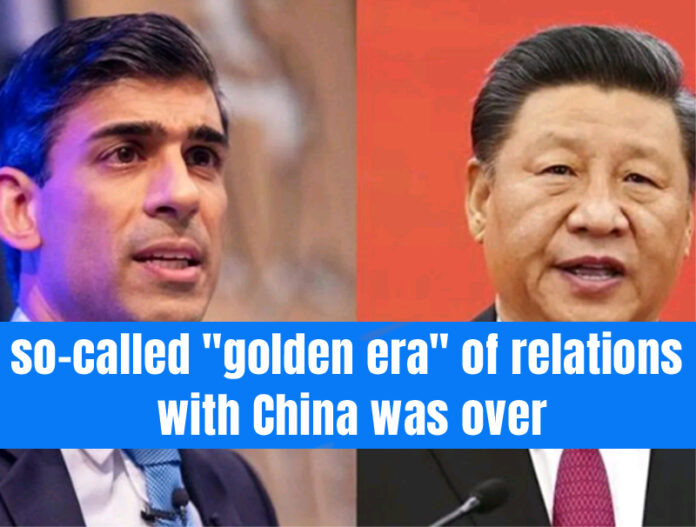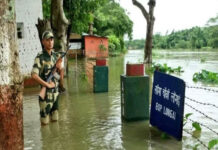British Prime Minister Rishi Sunak has said the so-called “golden era” of relations with China was over, saying Beijing’s systemic challenge to Britain’s interests and values was growing more acute.
According to the BBC report, the UK PM has called the deeper economic connections of the UK-China from the previous decade “naïve”. In his first statement on foreign policy, Sunak asserted that in order to compete effectively, the UK must now replace wishful thinking with “robust pragmatism.” However, he cautioned against “Cold War rhetoric,” saying that China’s importance for the world must not be disregarded.
In his first major foreign policy speech, Sunak said Britain’s approach to China needed to evolve and Beijing was “consciously competing for global influence using all the levers of state power”.
“Let’s be clear, the so-called ‘golden era’ is over, along with the naive idea that trade would lead to social and political reform,” Sunak said in his speech on Monday to the annual Lord Mayor’s Banquet in London, a reference to former finance minister George Osborne’s description of Sino-British ties in 2015.
“We recognise China poses a systemic challenge to our values and interests, a challenge that grows more acute as it moves towards even greater authoritarianism.
“We cannot simply ignore China’s significance in world affairs – to global economic stability or issues like climate change. The US, Canada, Australia, Japan and many others understand this too.
“So together we’ll manage this sharpening competition, including with diplomacy and engagement.”
While unlikely to please Beijing, Sunak’s message was somewhat toned down from that on the campaign trail, when he called China the “number one threat” to domestic and global security.
Some in Sunak’s Conservative Party have been critical of the prime minister, regarding him as less hawkish on China than his predecessor Liz Truss.
Sunak’s government also condemned Beijing after a BBC journalist said he was beaten while covering Shanghai protests.


















































